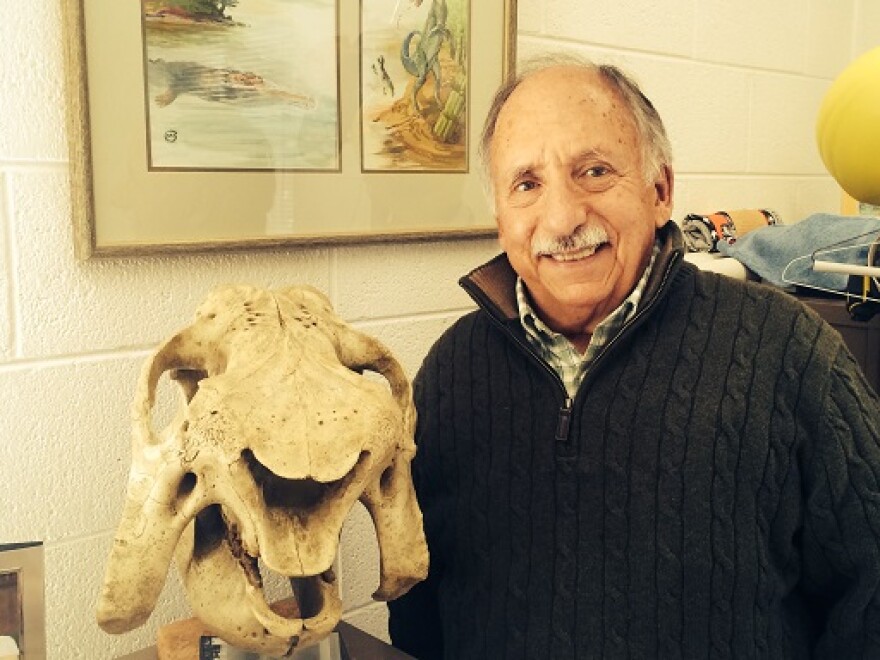Glyptodonts were giant armadillo-like creatures that went extinct with the last Ice Age. But not before they traveled across the land bridge from South America; some ending up in the Arizona desert near Safford. That's where scientists recently found a pair of their enormous skeletons, remarkably preserved.
"The glyptodont shell is made up of about 2,000 individual bony plates," says David Gillette, a paleontologist with the Museum of Northern Arizona in Flagstaff. "It's entirely fused like a turtle shell, and that fusion allows them to get large, up to about a ton and a half as adults."
Gillette is working in collaboration with museums across the state and the Bureau of Land Management to study the giant glyptodonts.

"They invaded North America along with ground sloths and armadillos and a variety of unusual rodents in this exchange," he says. "Other animals from North America invaded South America, like the saber tooth cats, and mastodons, and mammoths, and camels and llamas. And we had a wholesale exchange between two continents, and glyptodonts were one of those groups that came about 5 million years ago."
Because the newly found remains are so intact, Gillette says paleontologists have finally been able to distinguish betweel male and female glyptodonts, their growth stages, even their species.

He says this is important in understanding the facts of biodiversity and the evolutionary history of this group of prehistoric animals.
Brain Food is produced by KNAU, Arizona Public Radio.





